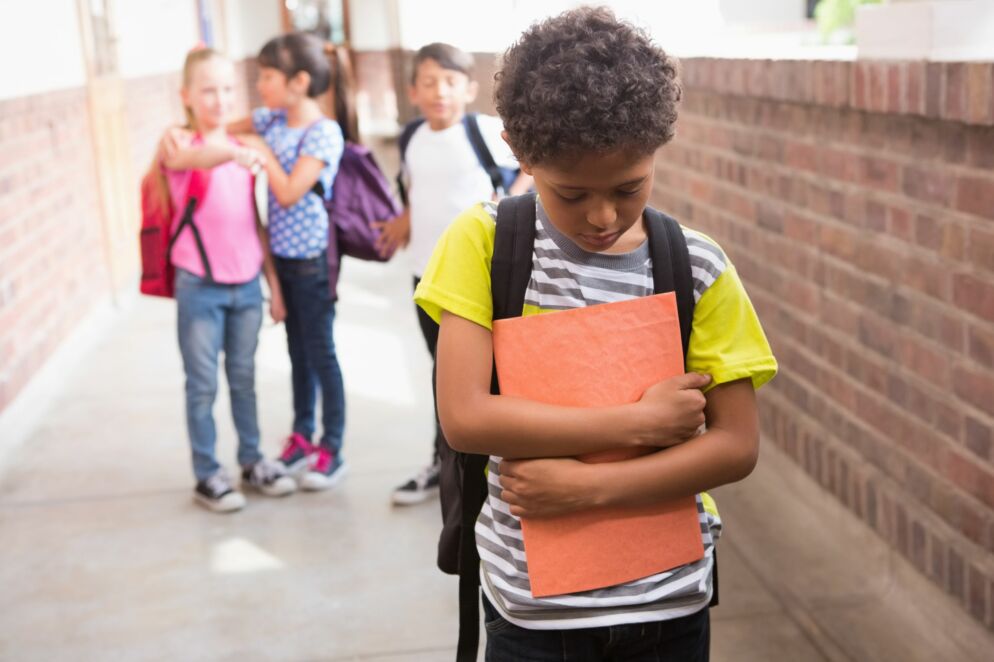
For many students, bullying is an unfortunate reality of their school experience. Children can be cruel no matter how old they are, though a report from the Centers for Disease Control and Prevention’s injury center states that bullying is most commonly reported in middle school.
Common anti-bullying sentiment, such as “be an upstander, not a bystander,” an adage that many schools teach, often puts the responsibility of doing something about bullying on children, encouraging bullying victims to tell an adult about what is happening, and witnesses to bullying to step in to defend their peers. What is often downplayed is the responsibility of parents when their child is bullied or their child bullies others.
So what should a parent do to help their bullied child? And what should they do if their child is a bully?
In an article for The Greater Good Science Center at the University of California, Berkeley, developmental psychologist Diana Divecha writes that creating an authoritative but positive household is best. Bullying often starts in the home, with children mirroring adults or other authority figures in their lives. A firm, but gentle, approach is best.
“In contrast, children who experience harsh parenting practices fare worse, and they’re more likely to become a bully or become the focus of bullying,” Divecha writes.
Echoing this statement is Dr. Shakira Espada-Campos, the associate chief of behavioral health at MDLIVE. “If parents are concerned about their child exhibiting bullying behavior, it’s important to model empathy and respect yourself,” she says.
Dr. Espada-Campos has worked in the fields of child and family therapy for more than two decades, with a focus on trauma and social justice issues. While bullying is not her primary specialty, it is a common experience shared by many children and teenagers that often overlaps with her work because of its effects on their mental health.
On the social justice side of the issue, bullying can often stem from bigotry: children harassing those who are different from them, whether it is due to their race, gender, sexuality or economic status. Espada-Campos suggests nipping this in the bud by encouraging open communication, which can lead to more understanding.
“The lack of awareness or knowledge of another group can result in the creation of false and/or unfair narratives. The ability to ask questions, learn about others and challenge misconceptions can lead to greater understanding, empathy and compassion,” she explains. “Creating a safe space for communication and an opportunity to learn is the first step in challenging bigotry.”
The most important thing that parents can do for a bullied child is to be there for them every step of the way, whether that involves offering a shoulder to cry on or taking steps to discuss bullying with authority figures at their school. Bullying can be a difficult and traumatic experience that a child should not face alone.
“It’s important to hear what the child experienced and reassure them that the decision to tell you was correct,” Espada-Campos says.
Bullying Resources in D.C.
By Jarrad Saffren
If you are looking for resources to help your child deal with bullying in the Washington, D.C., area, the D.C. Office of Human Rights has a Citywide Youth Bullying Prevention Program. The program focuses on “prevention, supporting at-risk youth and addressing incidents to change behavior.” Its goal is to move “beyond just in-school prevention” to take a community-wide approach. The Youth Bullying Prevention Program includes tipsheets on bullying and mental health, cyberbullying and responding to reports of bullying at ohr.dc.gov.
The Office of the Student Advocate also provides bullying resources for parents online.
Its resources cover bullying prevention and responding to bullying trauma. Find more on studentadvocate.dc.gov. Parents can also contact the office directly at 202-741-4692.







